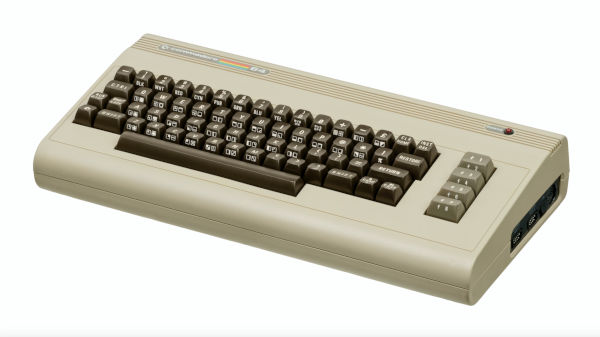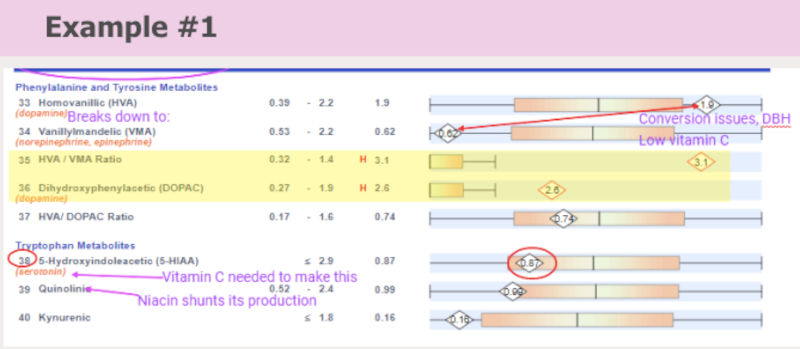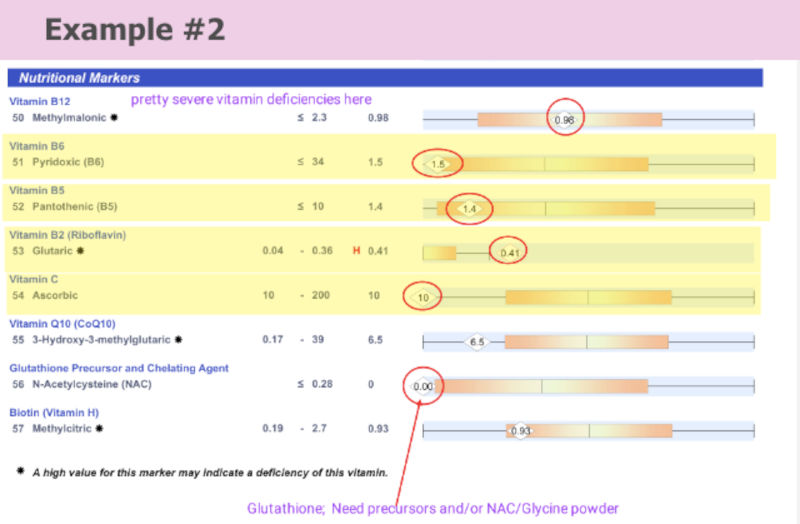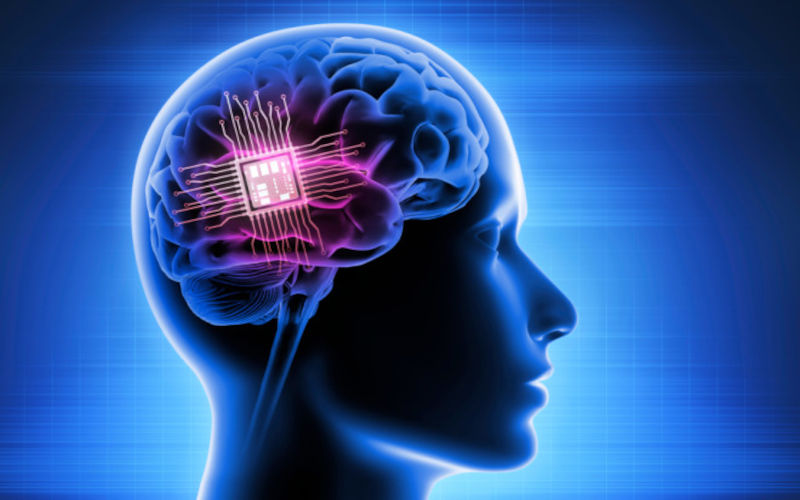There are two functional aspects of human mental health: Hardware and Software. What follows is a discussion on both of these aspects and how we can better understand the human condition by studying these distinct concepts.
Hardware is biochemistry. It is the physiological aspect of the brain and the central nervous system. It encompasses nutrients, toxicity, hormones, the endocrine system, and neurotransmitters. This is the physical part of mental health and is the realm of the physical brain and central nervous system.
Software is the non-physical aspect of mental health. It includes experiences, trauma, conditioning, self-image, self-talk, belief structures, “motivation”, spirituality, and all that encompasses one’s paradigm and worldview. These are the things about a person’s personality and are part of how the individual views him or herself and how one interacts with the world around them.
Let’s look at depression, for example: chronic or acute depression is hardware and/or software based. You can’t “treat” one aspect and expect to correct the other. Both aspects need to be “treated”, meaning, they need to be fixed by the method that is of the same nature as it. It doesn’t make any sense to try to “fix” a biochemical, hardware problem when the real issue is “programming” or software-oriented.
It is about understanding the difference between the physical brain and the non-physical mind.
The Human Computer

The best analogy in this scenario is a computer. If there is a problem with the computer, it must be determined if it is a hardware or software problem. If it is a hardware problem, meaning, something to do with a physical component, then that physical component needs to be fixed. If it is a software issue, or, programming, then the non-physical program must be fixed or uninstalled and re-installed.
I can’t tell you how many people get lost with this or get the wrong “treatment”. They have a software problem but their doctor or health care practitioner gives them pills to correct a hardware issue that doesn’t exist, or they have a hardware problem (such as a nutrient deficiency, food allergy, a toxic excess of an environmental chemical or metal, or a problem with the gut-brain-axis) and they get psycho-therapy and fail to achieve useful long term results.
This is a failing of the mental health industry, which includes both the mainstream and alternative; one side thinks all mental health issues are because of “chemical imbalances” and the other side thinks they can talk anyone into being mentally-well. The cause of mental health issues are either biochemical or physical (hardware) and conditioning or programming based on experiences, worldview, and trauma (software), or some combination of these various components. Both the hardware and the software of the human psyche need to be fixed or worked with concurrently, because both aspects influence one another. The truth is, no matter how great a psychotherapists is, he cannot talk someone into not having a biochemical deficiency, and no matter how potent and powerful a drug, medication, or supplement is, it cannot correct a person’s self image or change their ideology or worldview. The treatment must fit the concern, and the practitioner must discover if the patient has a hardware and/or software problem, and then work accordingly.
The physical or biological components include all aspects of the physical body, such as the brain, the central nervous system, the digestive system, the vital organs, and biochemistry. If there is a malfunction in the actual biochemical aspect of the body, then no amount of therapy, positive thinking, or self-development seminars can have any measurable effect on the person’s mental well-being. Self-help guru Tony Robbins has long suggested physical fitness and good nutrition as keys to self-improvement. Certain vitamins like vitamin B3 (niacin) and Vitamin C have profound effects on proper biochemical mental health. Below you will see some test reports demonstrating how the physical component, the hardware, is influenced by various aspects of biochemistry.


The above two Organic Acid Test report snippets are from two different individuals and from previous email lessons, but they are very relevant here. If we are evaluating biochemical causes of mental health concerns, then we can use lab tests such as Organic Acid Testing to find possible biochemical deficiencies.
Example #1 features several neurotransmitter deficiencies or imbalances that related strongly to this person’s anxiety and concentration concerns. This is a hardware problem that strongly suggests several nutrient deficiencies, and will also explain why “counseling” didn’t work for this person until the hardware issues were solved. One of my patients has stated to me that she was unable to “take to the coaching” until we fixed the nutrient/hardware oriented issues. By fixing biochemical deficiencies we are able to achieve better outcomes with software issues, meaning coaching and counseling require good working “computers” for the “software upgrades” to work.
Example #2 shows us several possible b-complex deficiencies that need to be corrected before any “operating system upgrades” will be effective. Fixing these hardware-oriented deficiencies will make any coaching or counselling therapy much more effective.
One major vitamin deficiency that can create hardware concerns is niacin deficiency. For more information on this important nutrient, please click below and request a copy of my interview with Focus magazine about Niacin.
Click here for a copy of Dr Joseph’s interview about Niacin
Bugs in the Software

Common software concerns would include what we call “programming” or “conditioning, such as: upbringing, cultural influences, fears, trauma, past experiences, education, self-image, abuse, achievements, religion/no-religion, spirituality, and many others.
The job of the Drugless Functional practitioner is to explore these software concepts and discover what may be adversely influencing the person’s human experience and “fix the bugs in the system”.
The software aspect is what we call “the mind“, which is a separate entity from the physical brain but is intimately dependent on it. Without a physically working brain, the mind ceases to exist. But without a functional mind, the brain is simply an organ and human consciousness has no place for it to be expressed. The brain is the “container”, but without a healthy mind, it is “half empty”. When both the brain and the mind are healthy, the container is filled to the brim.
The mind can be looked at like an “operating system for the human brain. It gives the brain its function; the mind inputs data while the nuts and bolts of the brain sort it out. However, if there are bugs in the “OS” or “a computer virus”, then the software doesn’t function right; the mind doesn’t work right. The bugs have to be fixed, and until that happens, it doesn’t matter how good the hardware is, without a healthy mind, the brain doesn’t reach its full potential.
Here is a good example of how the mind can be “buggy” and there can be “mental illness” even with a healthy “brain”: I have an older relative that is extremely healthy, physically. She takes all the right supplements, eats well, gets exercise and activity, and doesn’t smoke or drink or even take pharmaceuticals. But she is a serial worrier. Her conditioning or “programming” has taught her that every silver lining has a black cloud, that life is about misery and is filled with hopelessness. This is a sign of “software” that is filled with bugs: bad attitude, sad outlook on life, and a negative worldview. The hardware is good; but the software needs to be fixed.
Concluding Thoughts
This new paradigm is, of course, a work in progress, as it should be. What we are ultimately attempting to do as health professionals is to find the root cause or causes of why someone isn’t happy with their life. Is it spiritual? Past experiences? Conditioning? Nutrient deficiencies? Food allergies? Mold toxicity? Or is it some combination of all of these things?
Understanding why someone is unhappy is every bit as important as having knowledge about how the brain and the mind work.
The ideas presented here open up the mental-health paradigm to a whole new world of possibilities and understandings. By utilizing the Hardware vs. Software concept, you can achieve some truly remarkable results with mental-health concerns.
For more info on this topic, visit The Practitioner’s Resource Guide!

